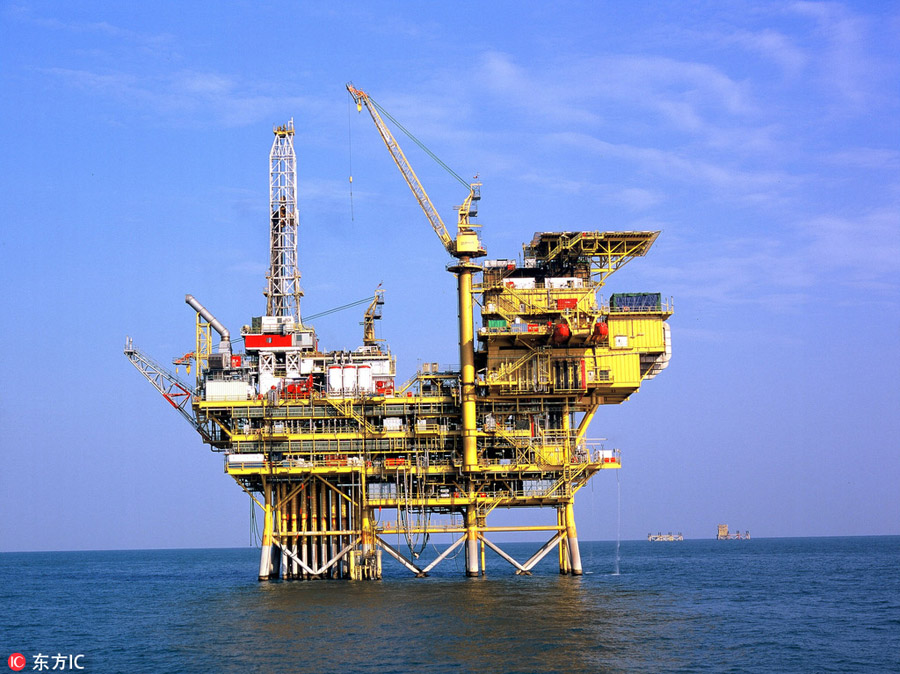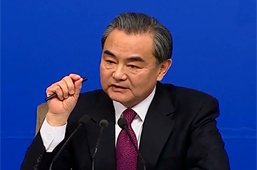
An oil rig in the Bohai Bay operated by China National Offshore Oil Corp, one of ConocoPhillips' partners. [Photo/IC]
Unconventional reservoir technologies and data analytics are key to boosting oil and gas exploration and production in China, according to a senior executive of United States energy company ConocoPhillips.
"When we think about China's energy situation, obviously the consumption of energy is growing at a rapid pace and we foresee that China is going to need a range of different energy sources," said Conoco-Phillips Chief Technology Officer Greg Leveille.
Over the past decade, oil and natural gas production in the US has grown quickly, Leveille said, noting this was largely enabled by two technologically driven revolutions - in unconventional reservoir development and data analytics.
"When we look at the opportunity set here in China, those are both technologies that could be applied at scale to increase the volume of oil and natural gas produced within the country," he said.
For instance in shale gas exploration, data analytics technologies could help developers to identify the best deposits and extract the maximum volume from them, which would help China increase output from its vast gas-rich shale deposits, according to Leveille.
"China tends to be a country that's very innovative, very forward-looking as far as deploying new technologies, and we think those two technologies are going to play a big role in China's energy future," he said.
Regarding the company's plan in China over the next several years, Mark Wheeler, president of ConocoPhillips China, said the company expects to deepen cooperation with its Chinese partners.
ConocoPhillips is working with China National Offshore Oil Corp, which currently operates production activities in two large offshore oilfields - Peng Lai field in Bohai Bay and Panyu field in the South China Sea. Collaboration with CNOOC will also take place in business strategies and commercial opportunities, Wheeler said.
"For the next few years, we will import a significant amount of liquefied natural gas and provide cleaner energy through natural gas shipments into China," he said.
LNG will continue to be a growing part of ConocoPhillips China, and the company has been working closely with CNOOC and China Petroleum and Chemical Corp in pursuit of sustainable growth, according to Wheeler.
ConocoPhillips' global LNG projects produce 20 million metric tons of LNG annually, nearly half of which is sold to China's national oil companies under long-term agreements.
To balance energy security with economic and environmental performance, China has invested in both natural gas and LNG for power generation, residential heating and mass transportation over the past decade, said Zhao Ying, a researcher at the Institute of Industrial Economics of the Chinese Academy of Social Sciences in Beijing.
It is critical to address the country's capacity bottlenecks and logistics constraints to ensure LNG supply, including pipelines, storage facilities and transportation networks, he said.



 Overview
Overview Resources & Environment
Resources & Environment



 QQ 好友
QQ 好友 微信好友
微信好友 易信好友
易信好友 QQ空间
QQ空间 朋友圈
朋友圈 百度空间
百度空间